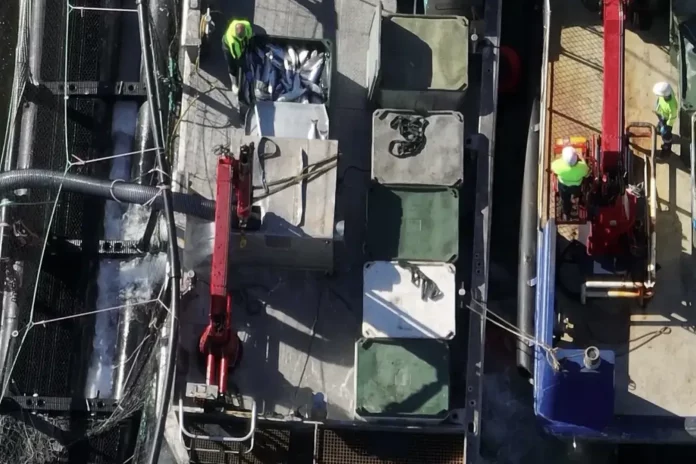To report or not to report? What activist footage means for the salmon industry — and for the people behind it.
Footage taken by activist groups is now regularly making its way into national newspapers. Sometimes it’s a short clip shared on social media. Sometimes it’s the basis for suspensions, lost contracts, or front-page headlines. Either way, it’s no longer something the salmon industry can afford to ignore.
At SalmonBusiness, we don’t report these stories because we enjoy them. We report them because once they reach mainstream media — and they increasingly do — they become part of the landscape the industry operates in.
We’ve seen MSPs cite welfare footage in the Scottish Parliament. We’ve seen UK parliamentary roundtables reference activist videos during discussions on fish slaughter. And last year, the Global Head of Seafood at DNB — one of the industry’s biggest lenders — publicly warned that animal welfare is fast becoming a core concern for financial institutions, not just consumers.
These stories matter not just for public image, but for access to capital, licences, and shelf space.
DNB links borrowing costs to welfare goals as bank exec calls mortality crisis ‘unacceptable’
For many consumers, particularly at the premium end, farmed salmon is a lifestyle product: high in omega-3, low in guilt, packaged with reassuring photos of pristine lochs and welfare stamps. But the reality behind it is harder. It’s early mornings on exposed cages managing livestock in unpredictable conditions. The people doing that work aren’t shopping in west London or scrolling social media for the latest outrage.
These videos don’t just affect companies. They affect workers — people doing long, physical jobs in tough conditions, often far from the people making the accusations. It’s easy to pass judgment from a distance. But farms aren’t film sets, and real life doesn’t always look clean through a drone lens.
We’re not here to validate campaign tactics. Nor to amplify them. But if the only place these stories are told is by groups that want the industry to fail, the result isn’t balance — it’s silence. And that creates a bubble where risks go unspoken until they escalate into crises.
We report because we think the industry needs to be informed — not just about prices and permits, but about pressure. We’re not interested in outrage. We are interested in consequences: what gets suspended, who takes action, what it means for producers, exporters, and supply chains.
The decision to publish these stories isn’t about siding with campaigners. It’s about recognising the conditions the industry is working under, and the scrutiny it now faces. That scrutiny isn’t going away. Pretending otherwise won’t help.

